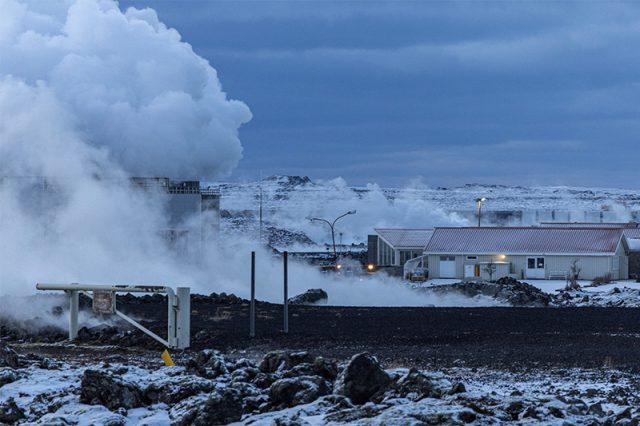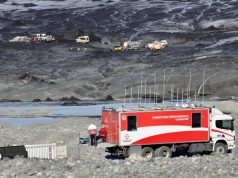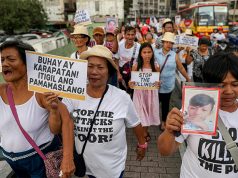
REYKJAVIK — Families from the Icelandic town of Grindavik won’t be going home for Christmas this year even after the tremors from this week’s volcano eruption died down and the lava stopped a few miles short of their front doors.
They were allowed back briefly on Thursday to collect presents and belongings and check on their properties. But authorities say it is still too dangerous for the fishing town’s 4,000 residents to move back full time.
“All I would like for Christmas is for this to be over and for us to be able to move back,” 43-year-old Kristin Maria Birgisdottir told Reuters.
It will be the first Christmas she has spent away from the town where she was born.
“Even though I want to go deep down in the basement with my feelings and just sit down and cry, I’m just trying to stay focused on the things that I’m grateful for,” she said. “We are in secured houses and we are safe.”
She will celebrate Christmas with her children, her parents and younger brother in a rented flat in the capital Reykjavik.
“My parents, they’ve been dealing with a lot of difficult emotions, especially my mum, because their house is ruined. They are never moving back again to Grindavik,” she said. Tremors cracked roads and damaged many buildings in the town.
“They had their house without any debts, so now they have this real uncertainty about the insurance … Will they get their house fully paid? Will they manage to buy another house? For how long will they have to wait?”
The eruption of the Svartsengi volcano spewed lava and smoke more than 100 meters (330 feet) into the air late on Monday after weeks of intense seismic activity on the Reykjanes peninsula in southwest Iceland.
In the build-up, authorities evacuated Grindavik which sits around 3 km (2 miles) from the southernmost point of the eruption site. The lava ended up missing the town and diminishing. But geologists say a tunnel of magma, or molten rock is running beneath the settlement, and there is a risk of more eruptions and tremors.
“What I’m sure of is that we will never have the same community of Grindavik, but we will have a much stronger one. Because they say when you experience difficult events with other people it connects you in a certain way, and I think this is what will happen,” Birgisdottir said.
“But if we are not allowed to go back, I don’t know. It’s just really difficult to think about that. To imagine my life without my hometown … It’s a thought that I haven’t even allowed myself to go into, because it’s just too difficult.”
— Reporting by Marco Trujillo and Marko Djurica; writing by Louise Rasmussen; editing by Terje Solsvik and Andrew Heavens







